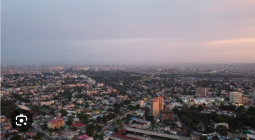DRC: Kasumbalesa draws on university expertise for sustainable urban development
A tripartite agreement on sustainable urban development has just been signed between the International Association of Francophone Mayors (AIMF), the University of Lubumbashi and the town of Kasumbalesa in the Democratic Republic of Congo (DRC).
Urban development in the Democratic Republic of Congo (DRC) is set to go from strength to strength over the next few years. And it won’t happen without the border town of Kasumbalesa in the southern province of Haut-Katanga. The town of less than 100,000 inhabitants recently signed an agreement with the International Association of Francophone Mayors (AIMF) and the University of Lubumbashi.
The agreement covers the mobilisation of university expertise to achieve the Sustainable Development Goals (SDGs) in the municipality. Under the terms of the agreement, the University of Lubumbashi will draw up an urban development plan for the future city centre to be built in the north of Kasumbalesa, in order to meet the population’s current and future challenges in terms of climate change and population growth.
The academic institution will use appropriate tools and methodology to “draw up a territorial diagnosis of the local authority, an environmental inventory (mapping) of the site to be urbanised, an analysis of the institutional and legal framework with a view to making any technical recommendations, assessments of the skills and capacities of the urban planning players involved in the project, and cost estimates”, says the AIMF.
The Platform of Local Authorities of the Great Lakes Countries (PALPGL) is also supporting this agreement, as it will be extended to other towns in the region seeking economic growth, such as Rusizi through the National University of Rwanda and Bujumbura through the University of Burundi. Other DR Congolese towns that have already reached this stage are now focusing on another area: technology. This is the case of the city of Kinshasa, which is implementing a “Smart City” initiative based on the Cloud and artificial intelligence (AI). It aims to digitalise health, financial and education services to improve the well-being of the 17 million people of Kinshasa.
Cover photo: By AFRIK 21



